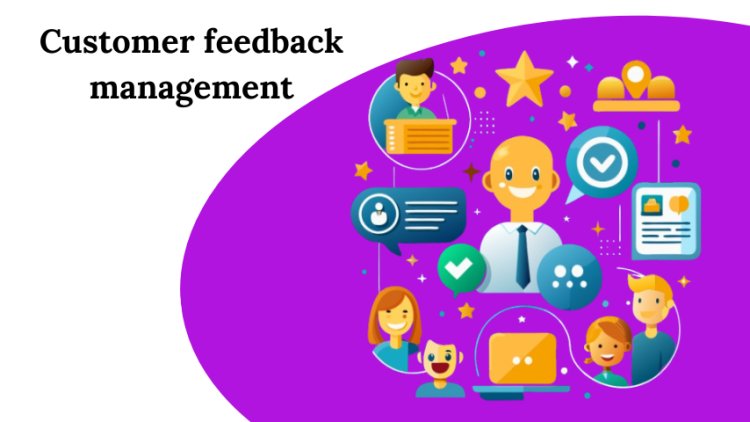How will you handle a customer: A Comprehensive Guide
Learn effective strategies for handling customers & mastering customer feedback management to boost satisfaction & retention.

In today's competitive business landscape, effective customer handling is the cornerstone of success. Mastering the art of customer interaction can transform casual buyers into loyal brand advocates. This comprehensive guide will explore proven strategies for exceptional customer service, focusing on customer feedback management and creating memorable experiences that set your business apart.
Understanding the Importance of Customer Handling
Customer handling is more than just a transactional interaction – it's about building relationships, trust, and long-term loyalty. Businesses that excel in customer service can:
- Increase customer retention rates by up to 80%
- Boost revenue through positive word-of-mouth marketing
- Differentiate themselves in crowded marketplaces
- Create a sustainable competitive advantage
The Psychology of Customer Interactions
Effective customer handling requires understanding human emotions and expectations. Customers seek:
- Respect: Feeling valued and heard
- Solutions: Quick and effective problem resolution
- Empathy: Genuine understanding of their challenges
- Consistency: Reliable and predictable service experiences
Key Strategies for Exceptional Customer Handling
1. Active Listening and Communication
Successful customer handling begins with active listening. This involves:
- Paying full attention to the customer's concerns
- Avoiding interruptions
- Asking clarifying questions
- Reflecting back to confirm understanding
Communication Best Practices
- Use a calm and professional tone
- Speak clearly and concisely
- Avoid technical jargon
- Show genuine interest in resolving issues
2. Effective Customer Feedback Management
Customer feedback management is crucial for continuous improvement. Implement a robust system that:
- Collects feedback across multiple channels
- Analyzes feedback systematically
- Transforms insights into actionable improvements
- Closes the feedback loop with customers
Key Components of Customer Feedback Management:
- Survey design
- Multi-channel feedback collection
- Real-time analysis
- Rapid response mechanisms
- Continuous improvement processes
3. Empathy and Emotional Intelligence
Emotional intelligence is critical in customer handling. Techniques include:
- Recognizing and managing customer emotions
- Staying calm under pressure
- Showing genuine compassion
- Understanding non-verbal cues
4. Problem-Solving Approach
When handling customer issues:
- Remain solution-oriented
- Take ownership of the problem
- Provide clear action plans
- Follow up to ensure satisfaction
Steps to Effective Problem Resolution
- Listen carefully to the issue
- Apologize sincerely
- Investigate thoroughly
- Propose multiple solutions
- Implement the best resolution
- Follow up to confirm satisfaction
5. Technology and Customer Handling
Leverage technology to enhance customer interactions:
- Implement CRM systems
- Use AI-powered chatbots
- Create omnichannel support platforms
- Utilize data analytics for personalization
Training and Development for Customer Handling
Invest in comprehensive training programs that focus on:
- Communication skills
- Emotional intelligence
- Technical product knowledge
- Problem-solving techniques
- Customer feedback management strategies
Key Training Components
- Role-playing scenarios
- Ongoing skill development
- Performance monitoring
- Reward and recognition programs
Measuring Customer Handling Performance
Track critical metrics to evaluate your customer handling effectiveness:
- Customer Satisfaction (CSAT) scores
- Net Promoter Score (NPS)
- First Response Time
- Resolution Time
- Customer Retention Rate
Common Challenges in Customer Handling
Dealing with Difficult Customers
Strategies for managing challenging interactions:
- Stay calm and professional
- Don't take complaints personally
- Focus on solutions
- Know when to escalate issues
- Practice de-escalation techniques
Overcoming Communication Barriers
- Use simple, clear language
- Be patient
- Offer multiple communication channels
- Provide translation services if needed
Q1: How important is customer feedback management?
Customer feedback management is crucial as it provides direct insights into customer experiences, helps identify improvement areas, and demonstrates that you value customer opinions.
Q2: What are the most critical skills for customer handling?
Key skills include active listening, empathy, problem-solving, communication, and emotional intelligence.
Q3: How can technology improve customer handling?
Technology enables faster responses, personalized interactions, multi-channel support, and data-driven insights for continuous improvement.
Q4: How do I handle angry customers?
Remain calm, listen actively, show empathy, apologize sincerely, and focus on finding a solution quickly.
Q5: What metrics should I track for customer handling performance?
Track CSAT scores, NPS, first response time, resolution time, and customer retention rates.
Conclusion
Exceptional customer handling is an art and a science. By implementing strategic approaches, leveraging technology, investing in training, and maintaining a customer-centric mindset, businesses can create outstanding customer experiences that drive loyalty, satisfaction, and growth.
Remember, every interaction is an opportunity to build a lasting relationship. Prioritize customer feedback management, continuously improve your processes, and commit to delivering value beyond expectations.
Final Takeaway: Customer handling is not just a department – it's a company-wide philosophy that can transform your business's success.
What's Your Reaction?



















